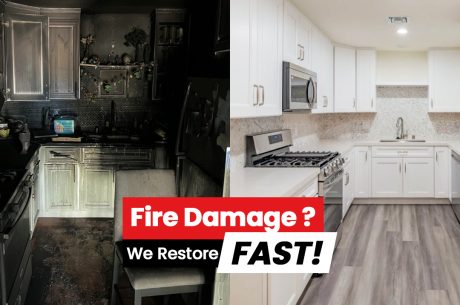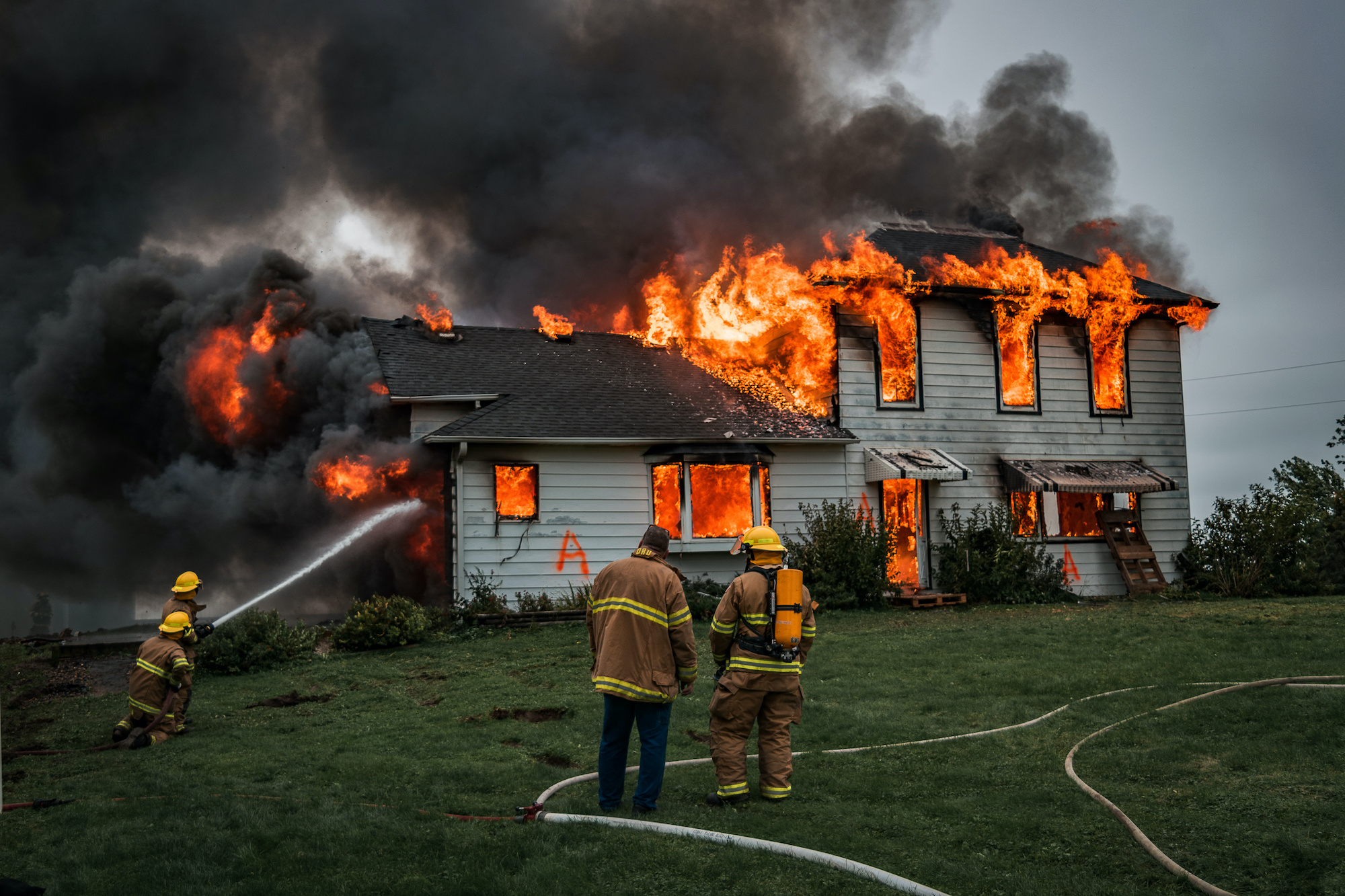Before we dive deeper into answering the “is soot dangerous” question, let’s cover the basics. Soot is made up of tiny carbon particles that are produced when organic materials like wood, oil, coal, or plastic don’t burn completely.
Soot often carries acidic compounds, chemicals, metals, and toxins. Not only does it stain everything it touches, but it also floats through the air and can enter your lungs, eyes, and bloodstream—raising the question again: is soot dangerous? Without a doubt.
Table of Contents
Where Does Soot Come From?
The most common cause of household soot is fire. But if you think soot only happens after a house fire, think again. Everyday activities can also bring it into your home.
Ask yourself: is soot dangerous if it’s coming from regular cooking or candle use? The answer is still yes.
Common Household Sources of Soot:
- Cooking oils burning at high temps
- Fireplaces with wood residue
- Candles, especially paraffin-based
- Furnaces or boilers with puff-backs
- Wall paint that attracts airborne particles
- Electrical outlets with static buildup
Is Soot Dangerous to Your Health?
Let’s be crystal clear: is soot dangerous to your health? Yes—and more than most people realize.
Soot particles are microscopic, which means they can be inhaled, absorbed through the skin, or get into your eyes. The health effects range from temporary irritation to serious chronic conditions.
Symptoms of Soot Exposure:
- Trouble breathing
- Chronic cough
- Skin and eye irritation
- Headaches
- Nosebleeds
- Worsening asthma
- Long-term lung or heart disease
Is Soot Dangerous for Your Home?
Yes, soot causes damage far beyond surface-level stains. Its acidic nature can break down paint, eat into wood, corrode metals, and ruin electronics. Left alone, soot also embeds deeply into fabrics, HVAC systems, and insulation.
How to Clean Soot Safely
Once you’ve identified soot in your home, the next question becomes not just is soot dangerous, but how do you remove it properly?
✅ Safe Cleaning Tips:
- Always wear PPE: gloves, goggles, and a respirator mask.
- Use HEPA vacuums to remove loose particles.
- Use dry sponges or oil-based cleaners for residue.
- Ventilate the area well while cleaning.
❌ What to Avoid:
- Water-based cleaners (they smear soot and worsen staining).
- DIY cleaning on porous materials like fabric or drywall.
- Ignoring your HVAC system—soot can circulate indefinitely.
So again—is soot dangerous if you don’t clean it properly? 100% yes.
When to Call in a Professional
If soot is spread across multiple rooms, embedded in materials, or affecting your health, it’s time to stop wondering “is soot dangerous” and call professionals who know how to handle it safely and completely.
Call PuroClean of Bloomington for Soot and Fire Damage Cleanup
At PuroClean of Bloomington, we specialize in soot removal, smoke damage cleanup, and complete fire damage restoration. We use HEPA filtration systems, air scrubbers, and thermal fogging to eliminate even microscopic soot particles.
📞 Call us today at (309) 451-9000
📍 Serving Bloomington, Normal, and surrounding areas 24/7.
Don’t risk your health or home by ignoring the warning signs. If you’ve been asking “is soot dangerous?”, it’s time to act.
🔍 FAQs – Is Soot Dangerous?
Q: Is soot dangerous even in small amounts?
Yes. Even minimal exposure can cause respiratory irritation and long-term issues.
Q: Can I clean soot on my own?
Some non-porous surfaces can be cleaned safely, but widespread soot should always be handled by professionals.
Q: Is soot dangerous for pets?
Yes. Pets are closer to the ground and can inhale or absorb soot particles more easily than humans.
Q: Will my insurance cover soot cleanup?
In many cases, yes—especially if it’s caused by a fire or furnace malfunction. Always check your policy.
Q: How quickly should soot be removed?
Immediately. The longer it sits, the more corrosive and hazardous it becomes.
Final Thoughts: Is Soot Dangerous? Yes — So Don’t Wait
By now, the answer to “is soot dangerous” should be clear: yes, for your health, your home, and your peace of mind. Don’t delay.
📞 Contact PuroClean of Bloomington at (309) 451-9000 for fast, professional service that brings your home back to safety.




 PuroClean Of Bloomington
PuroClean Of Bloomington